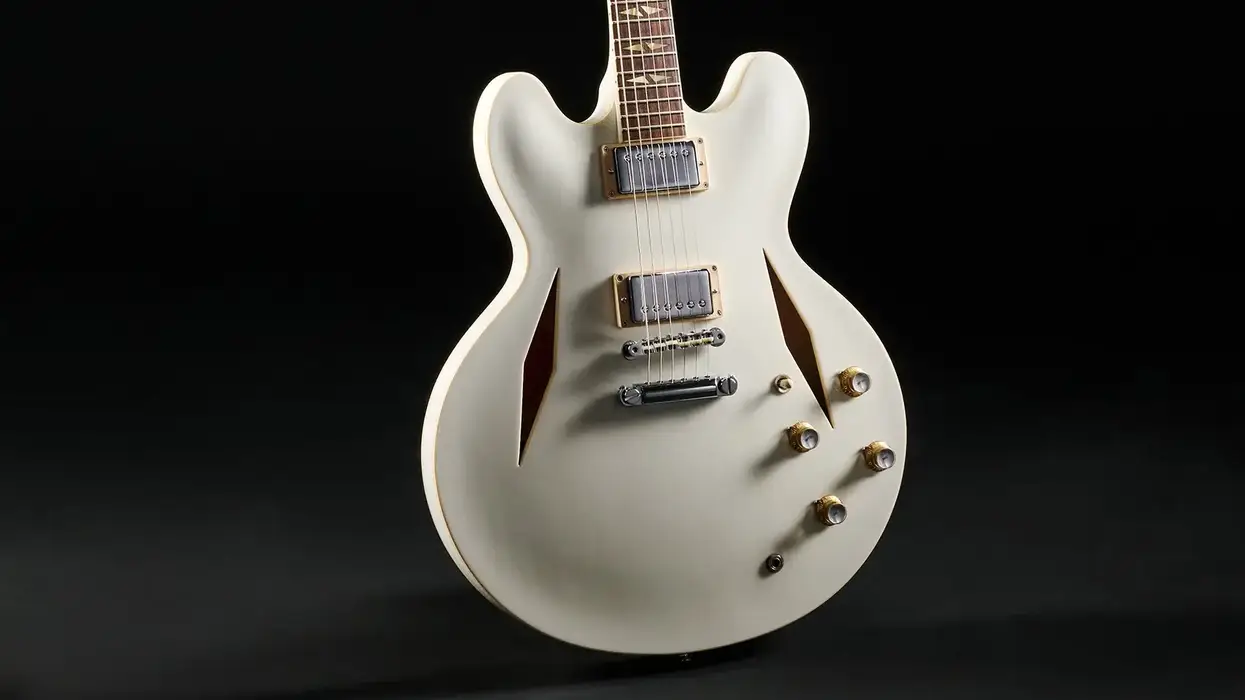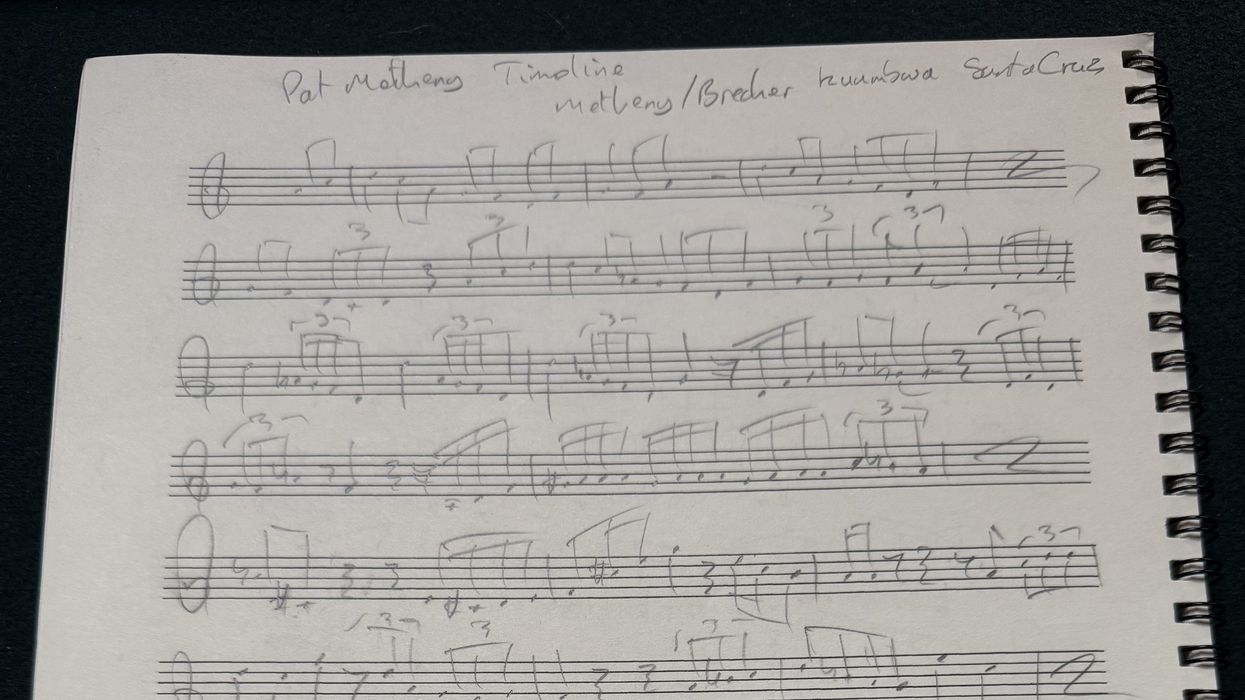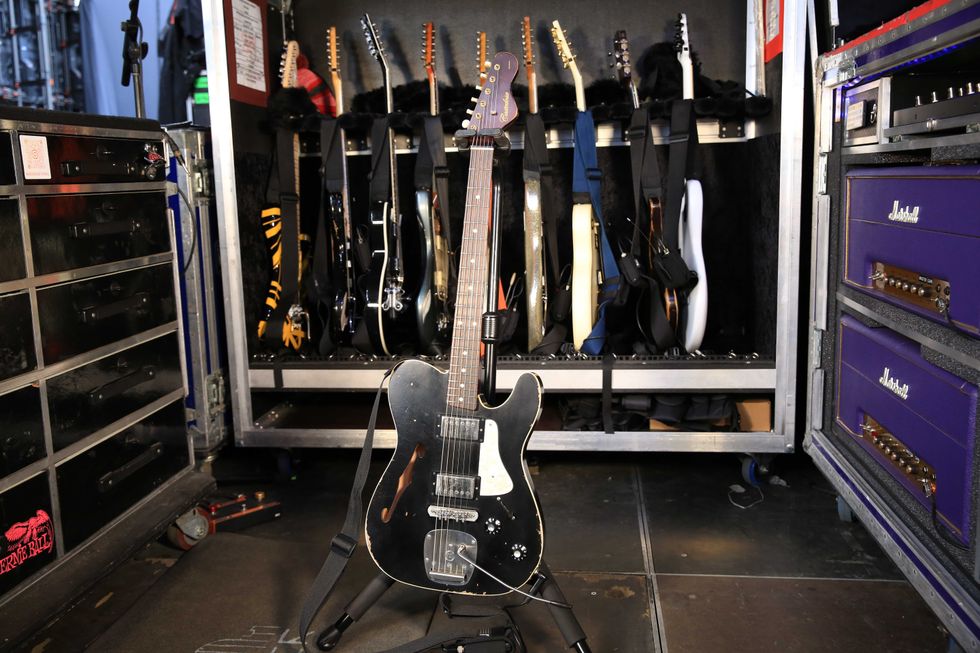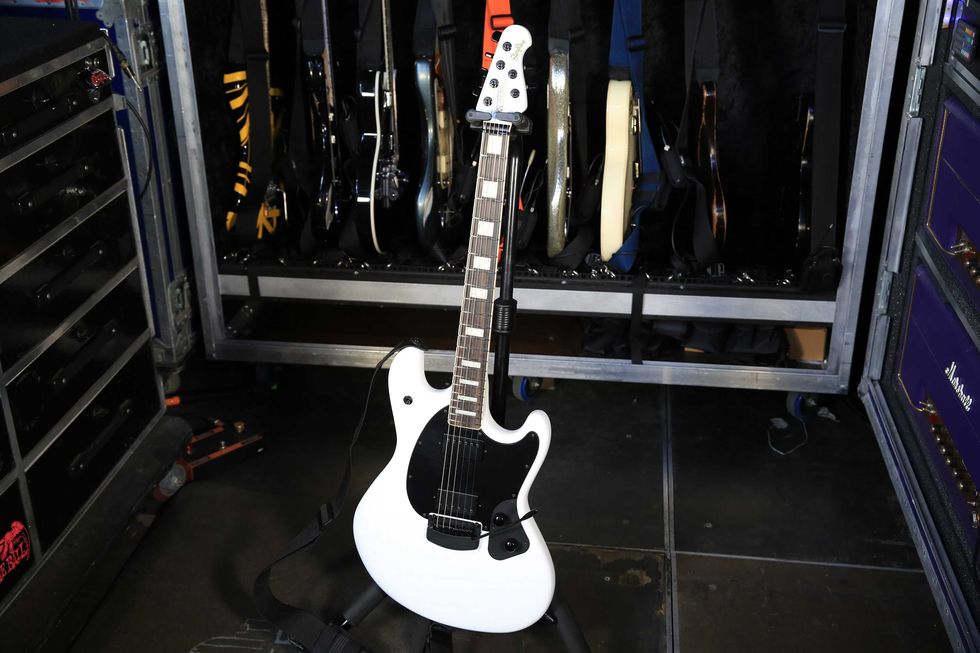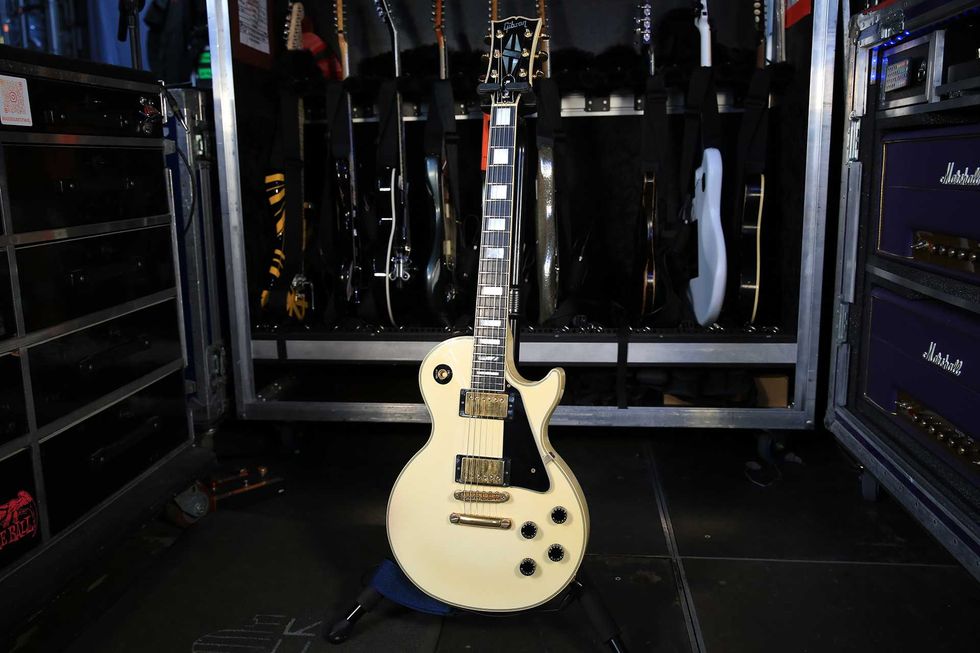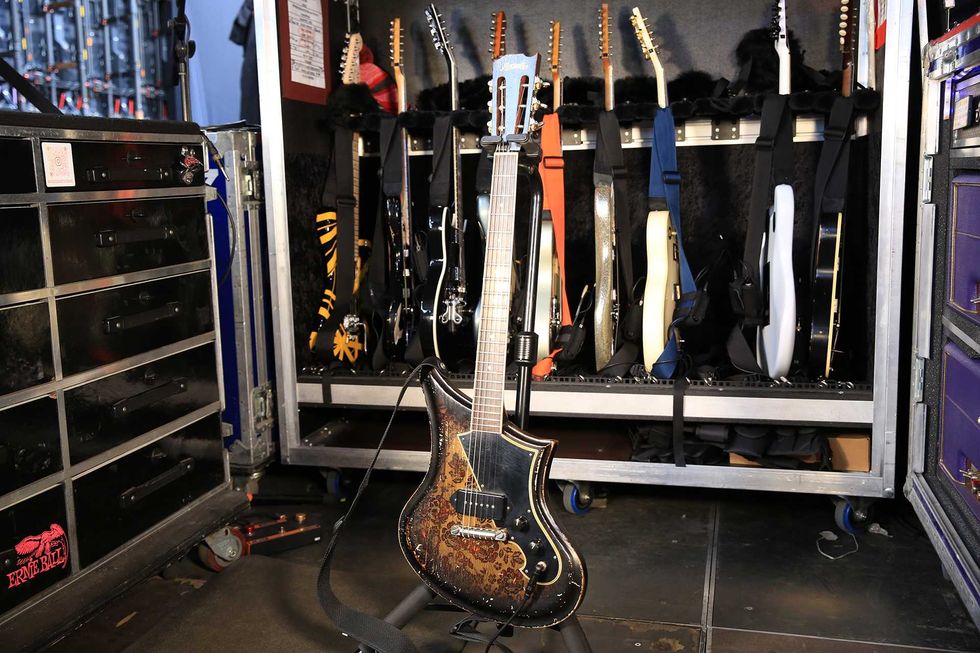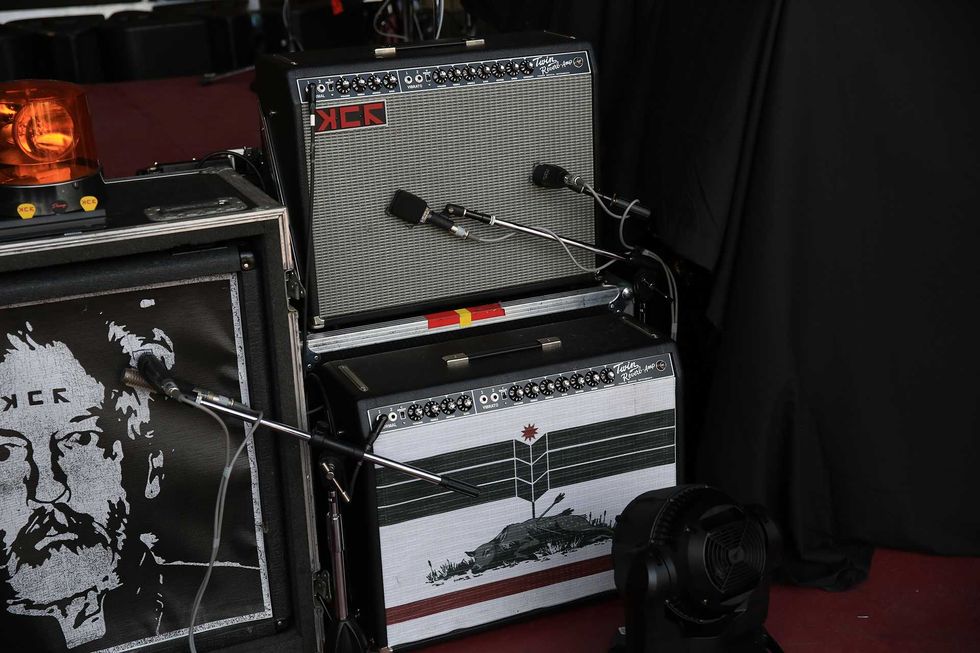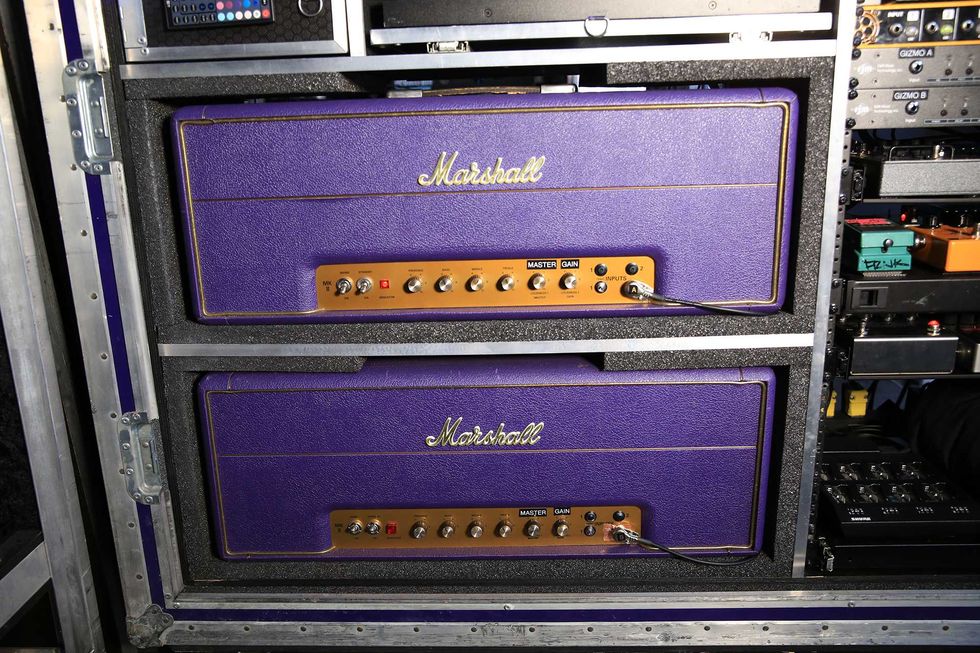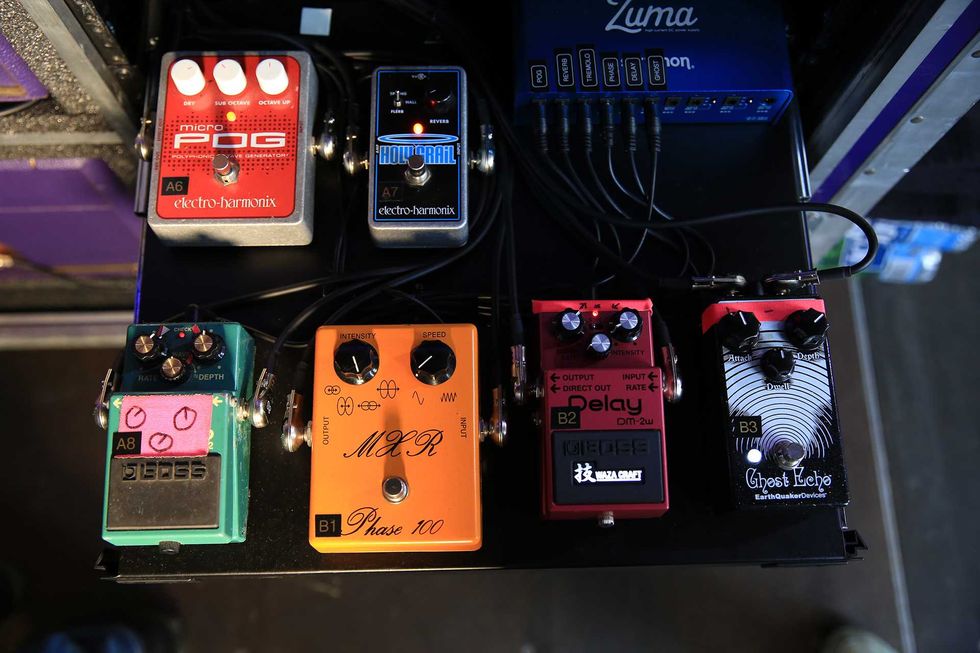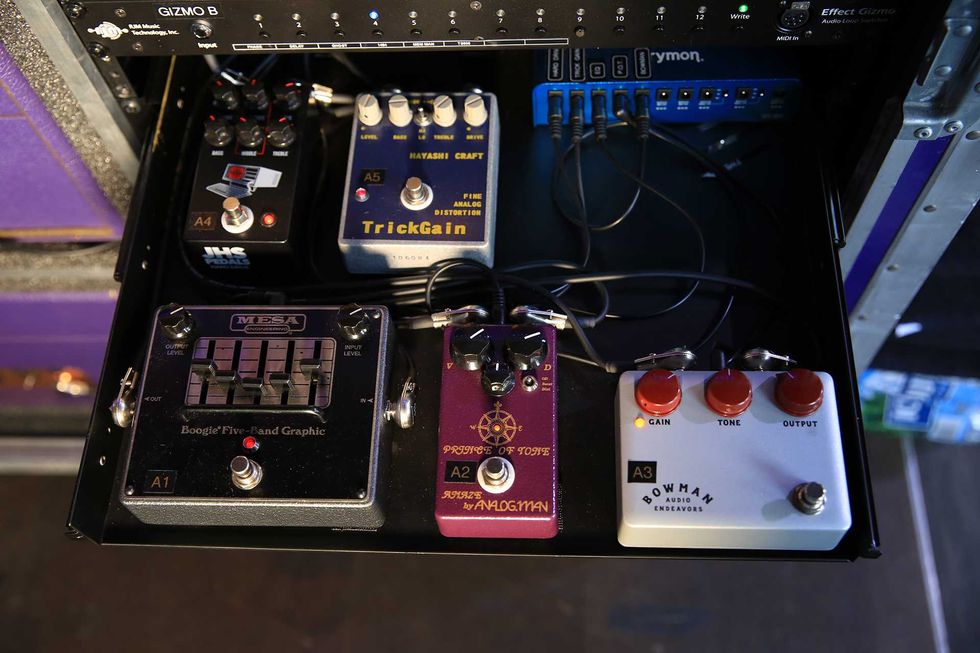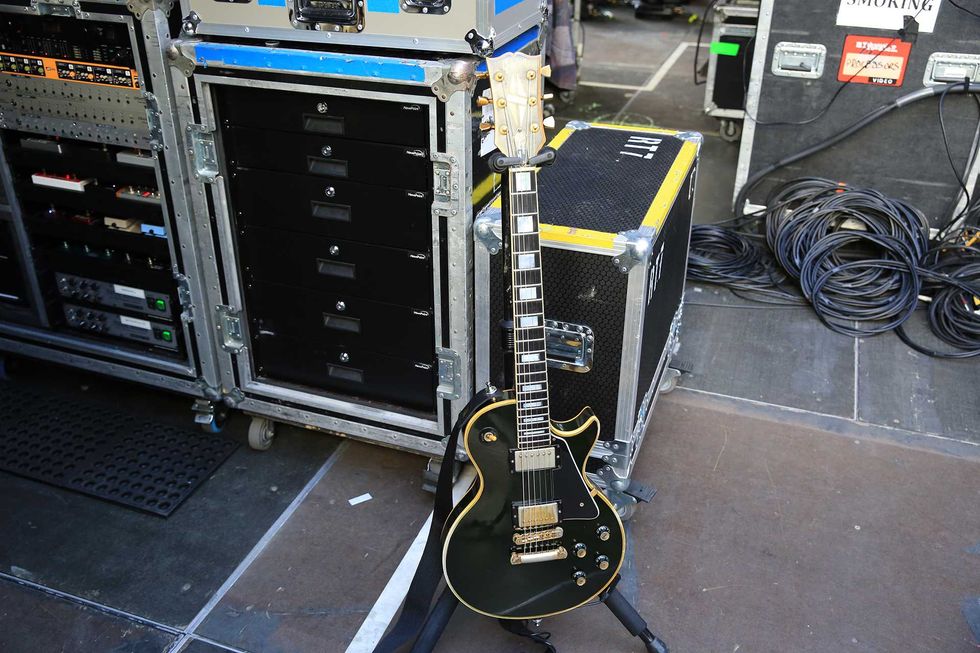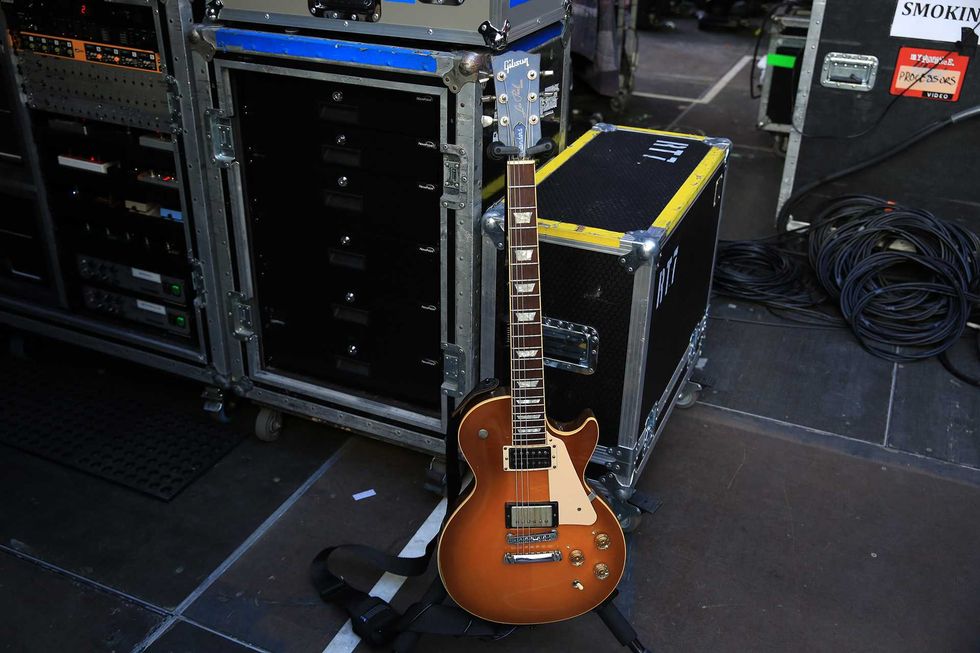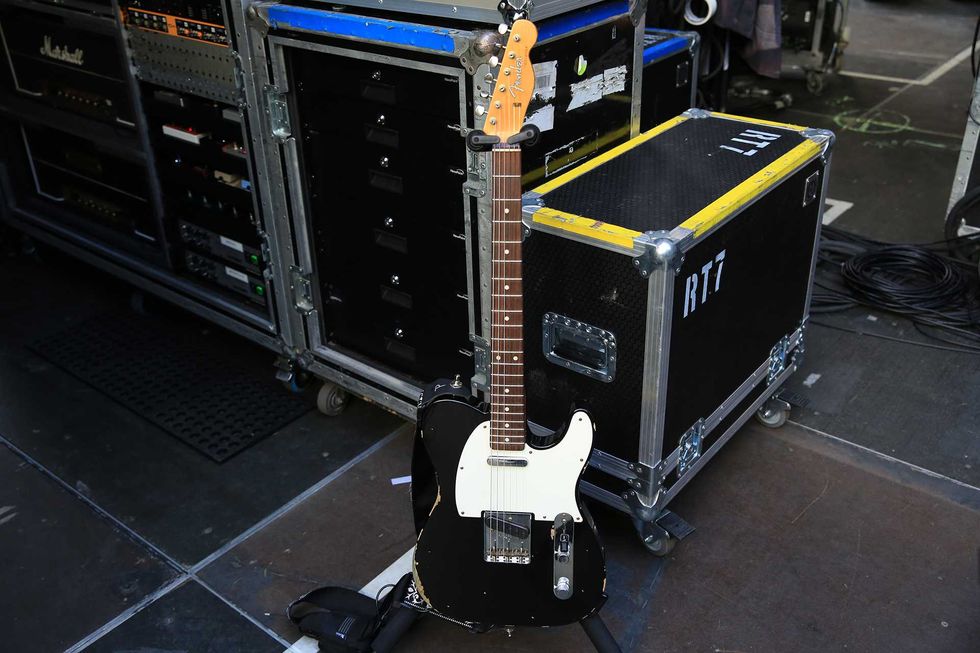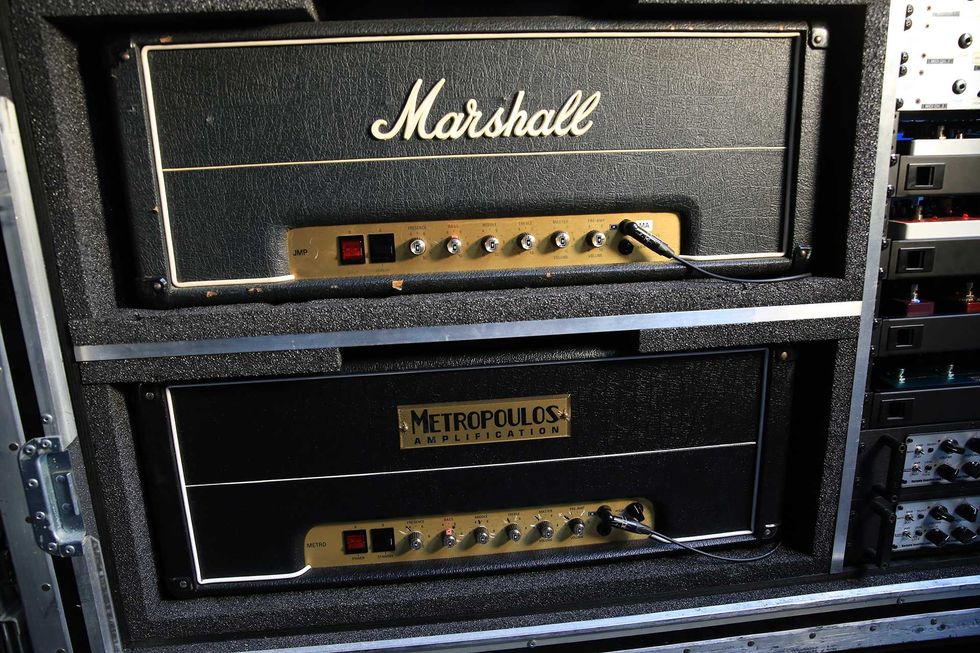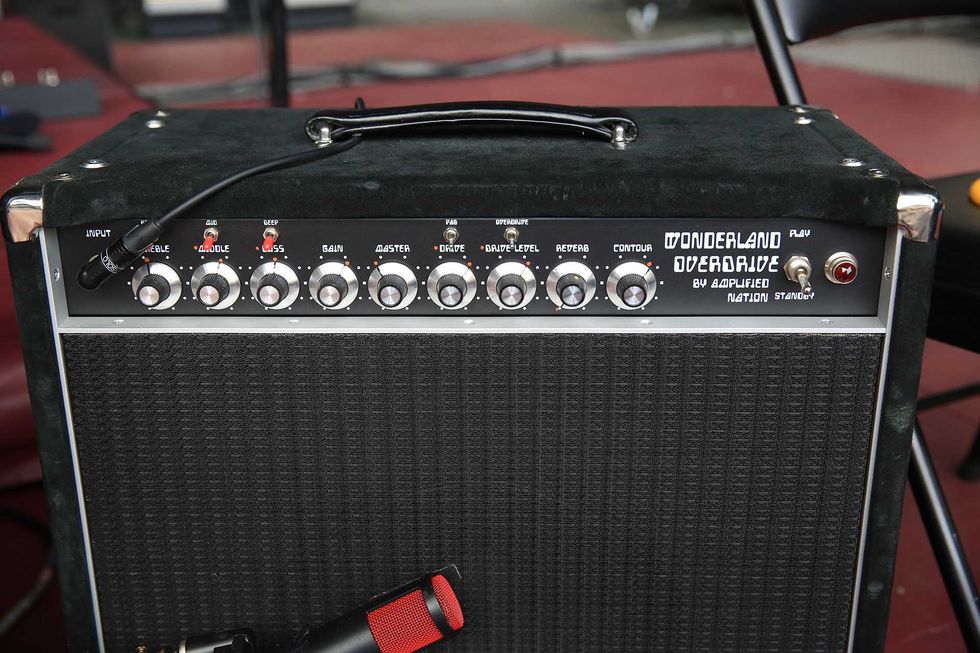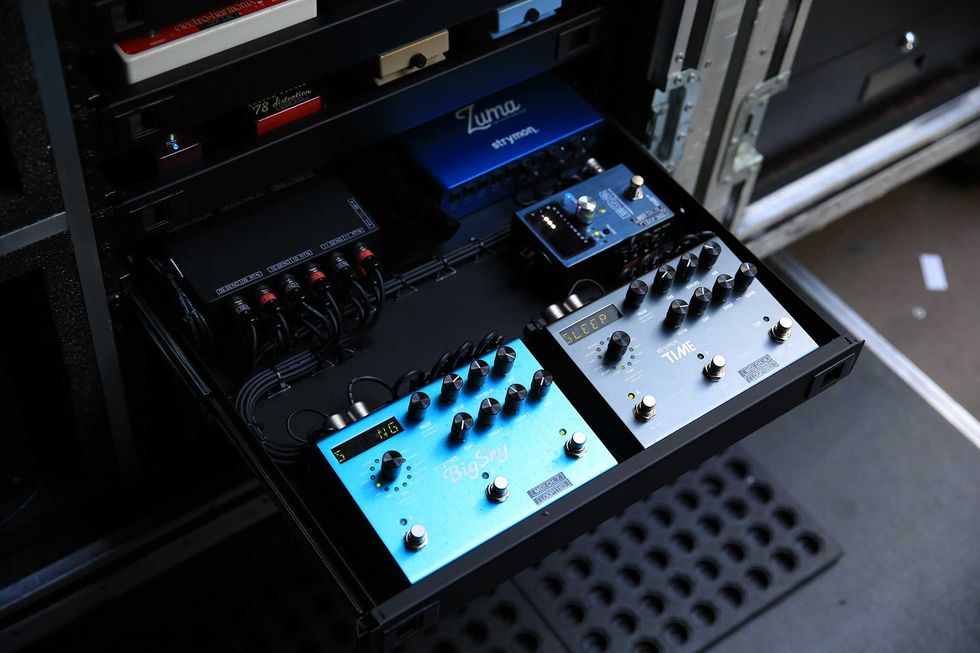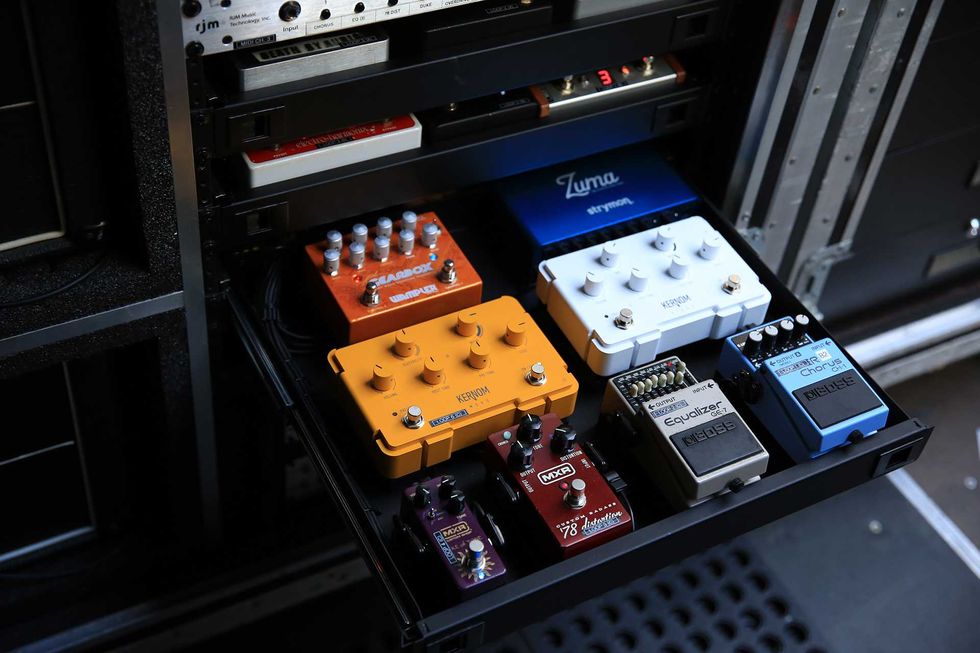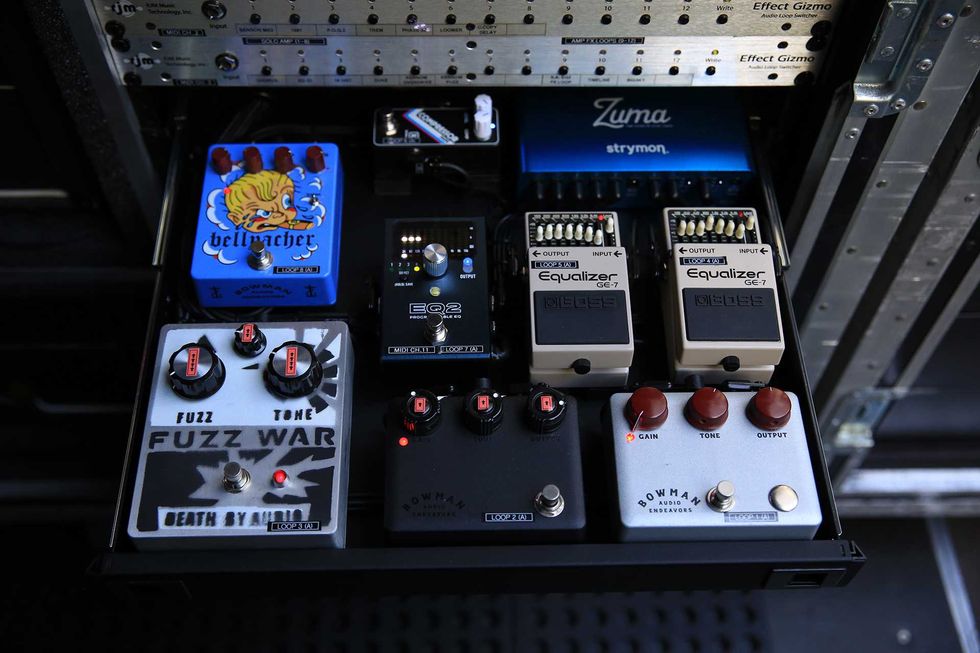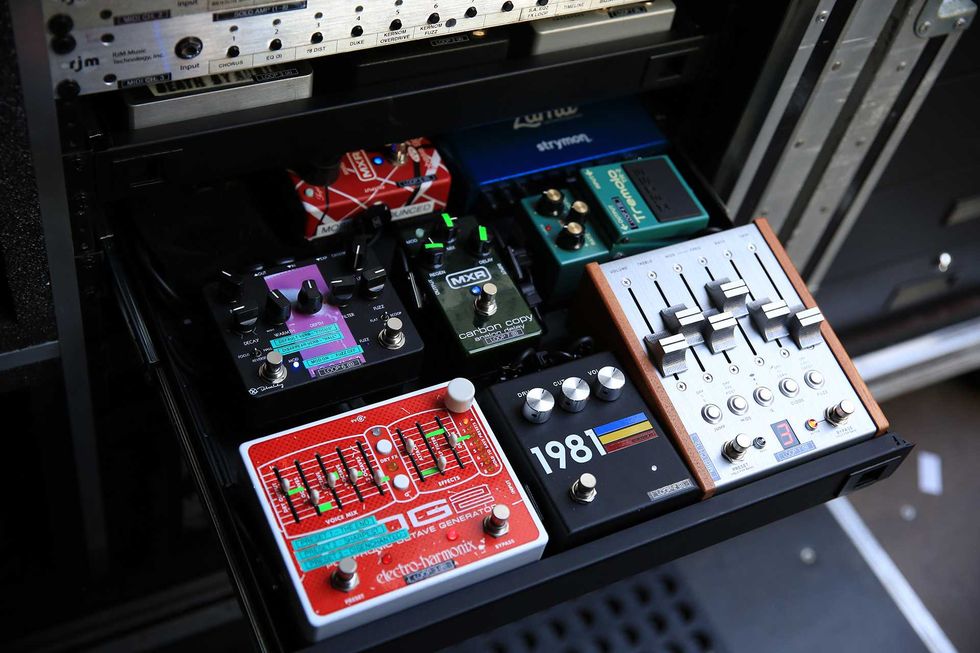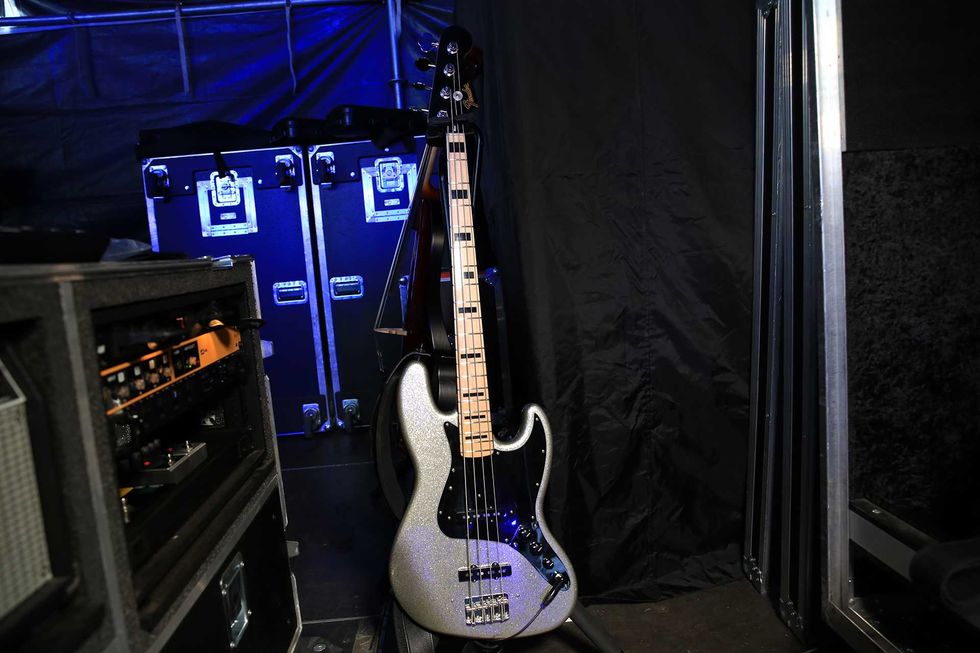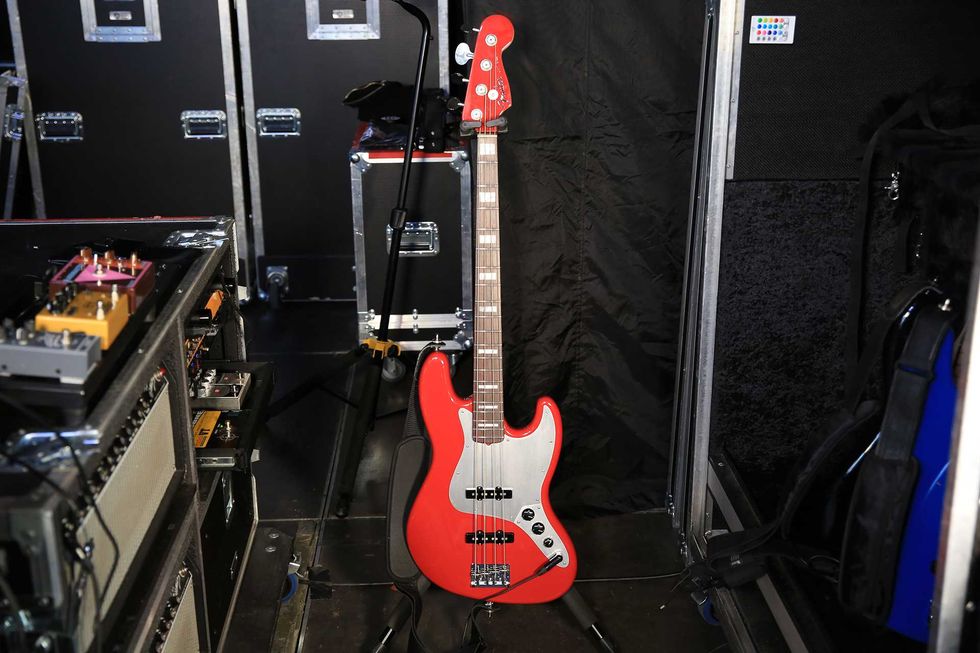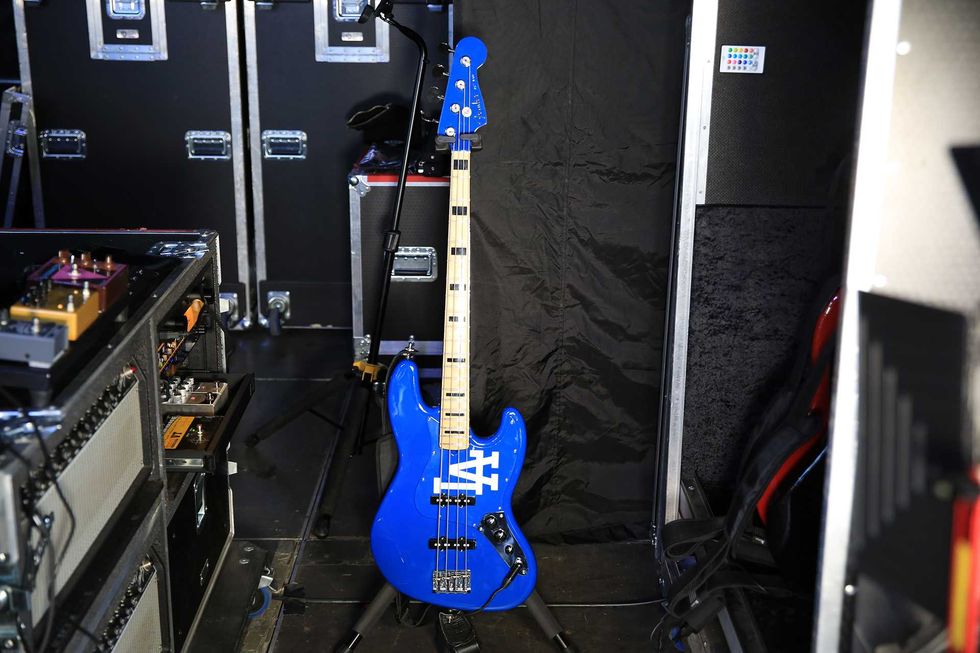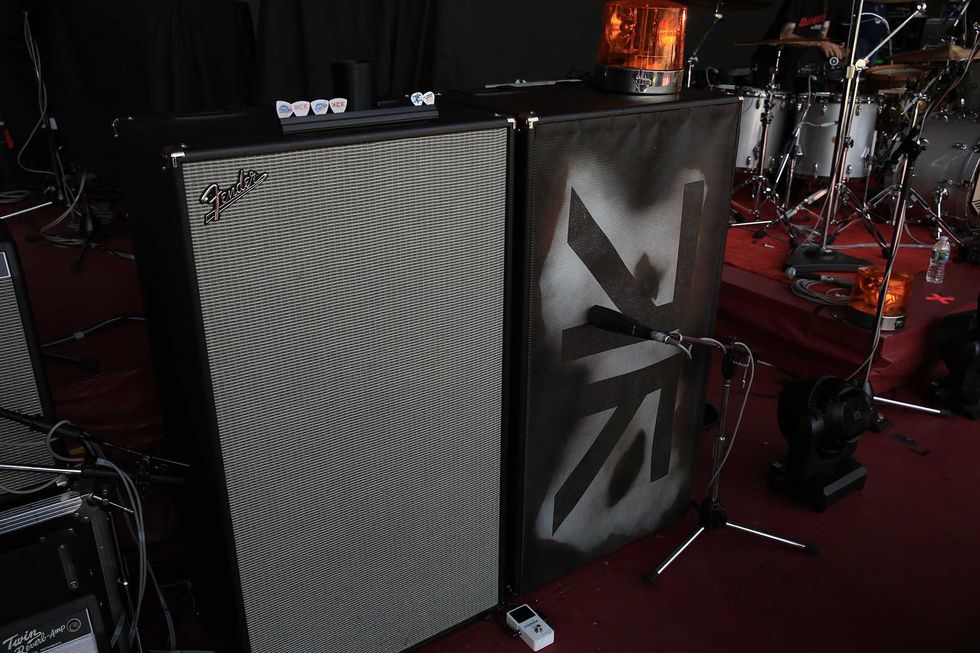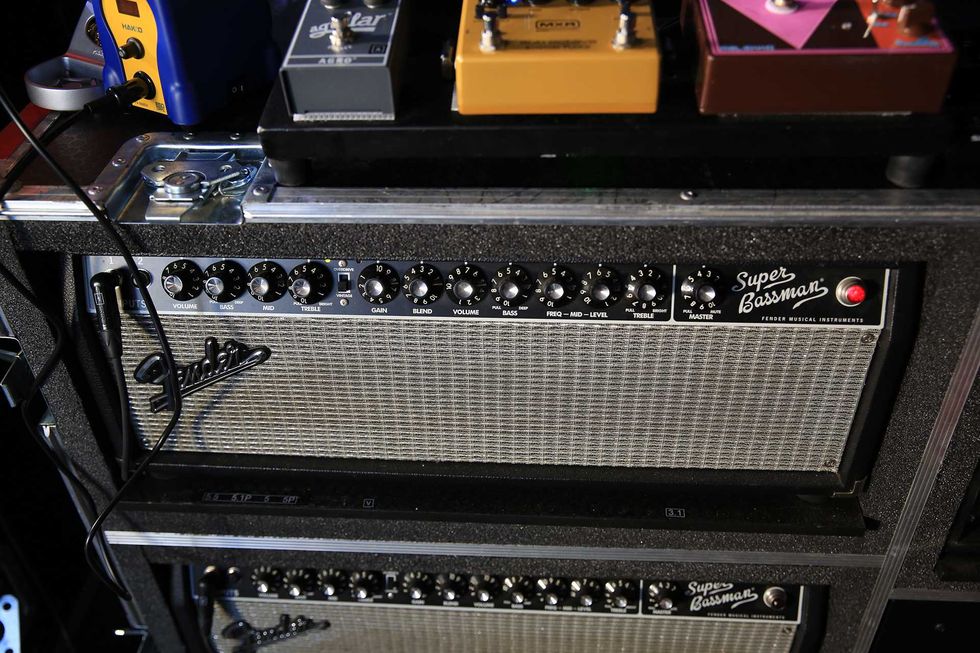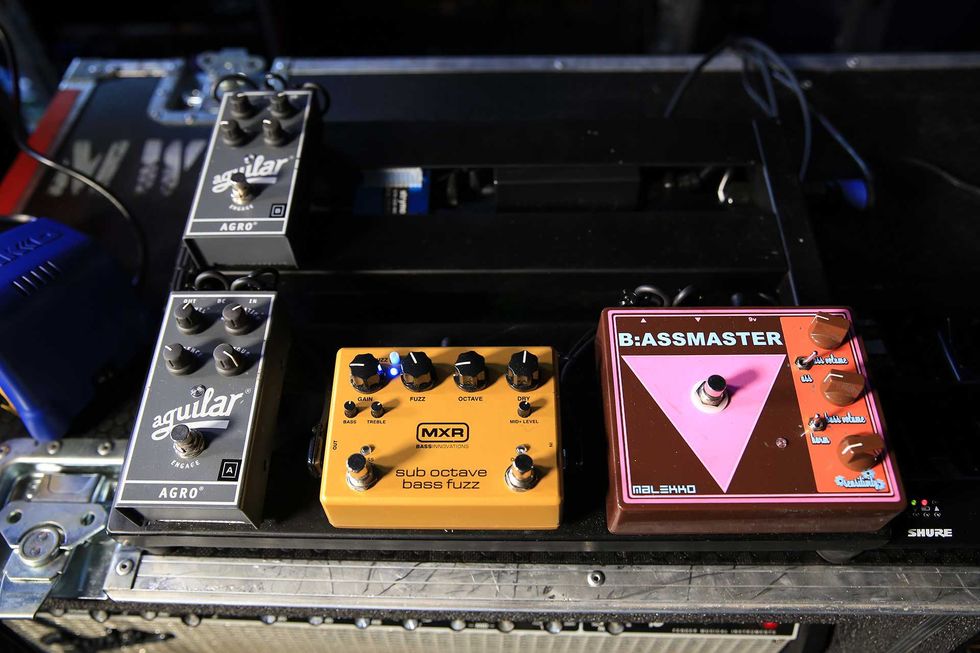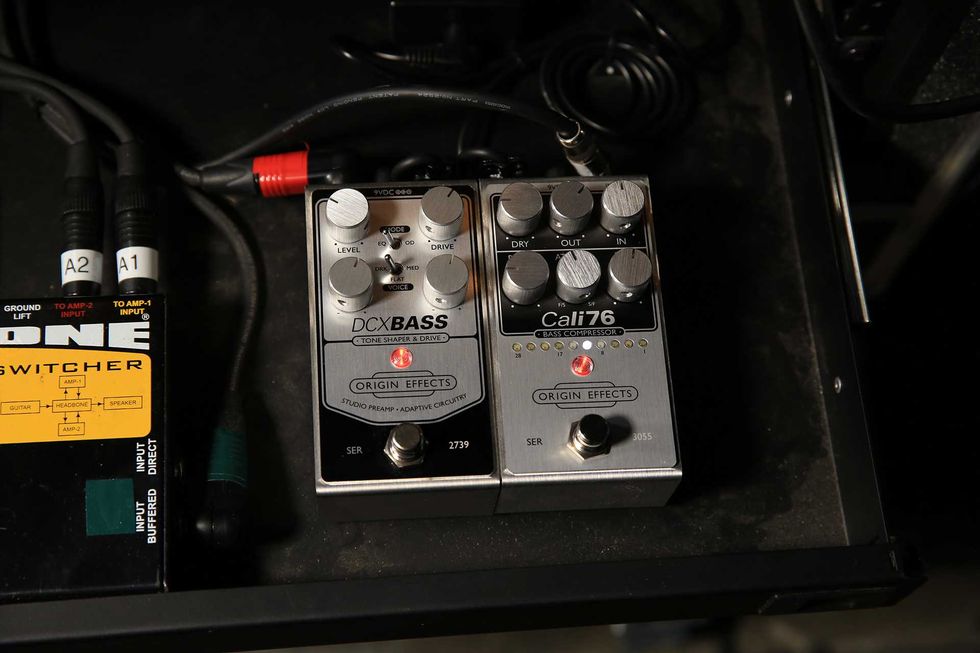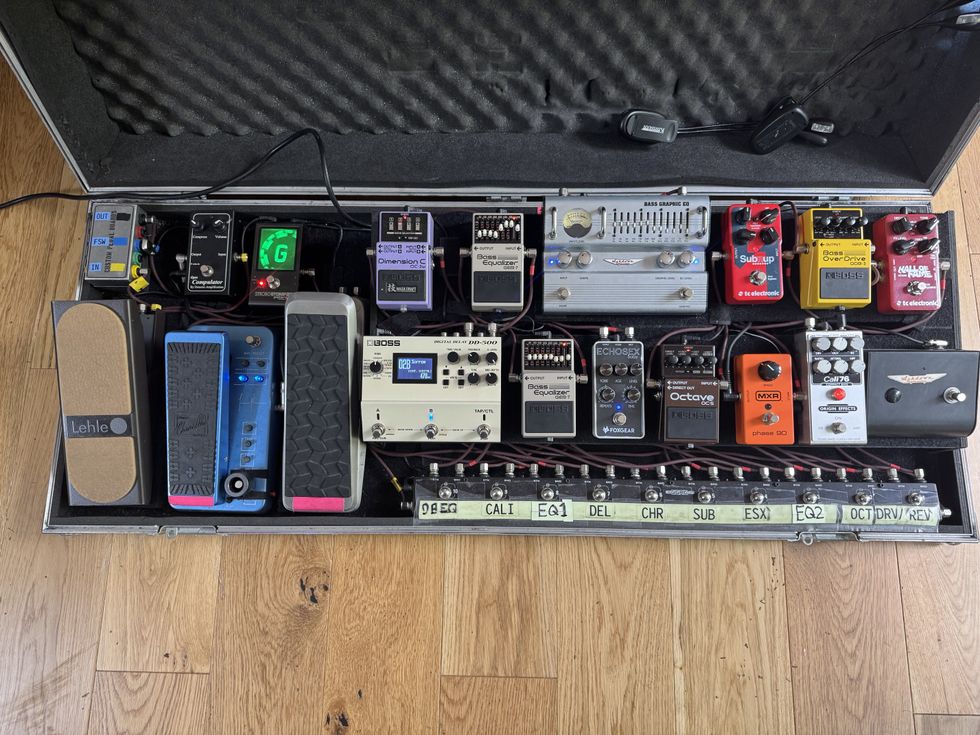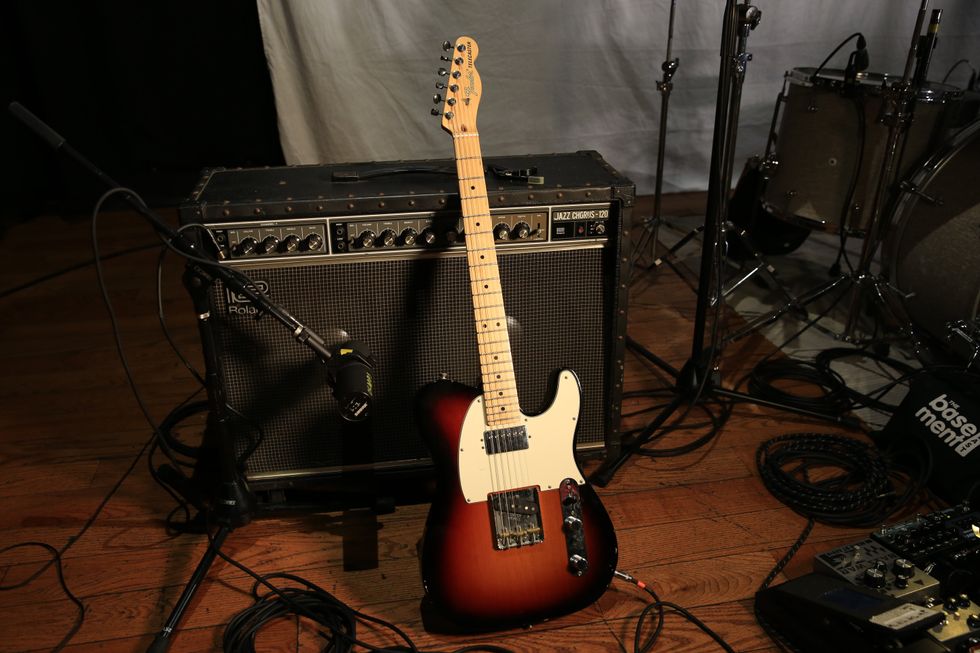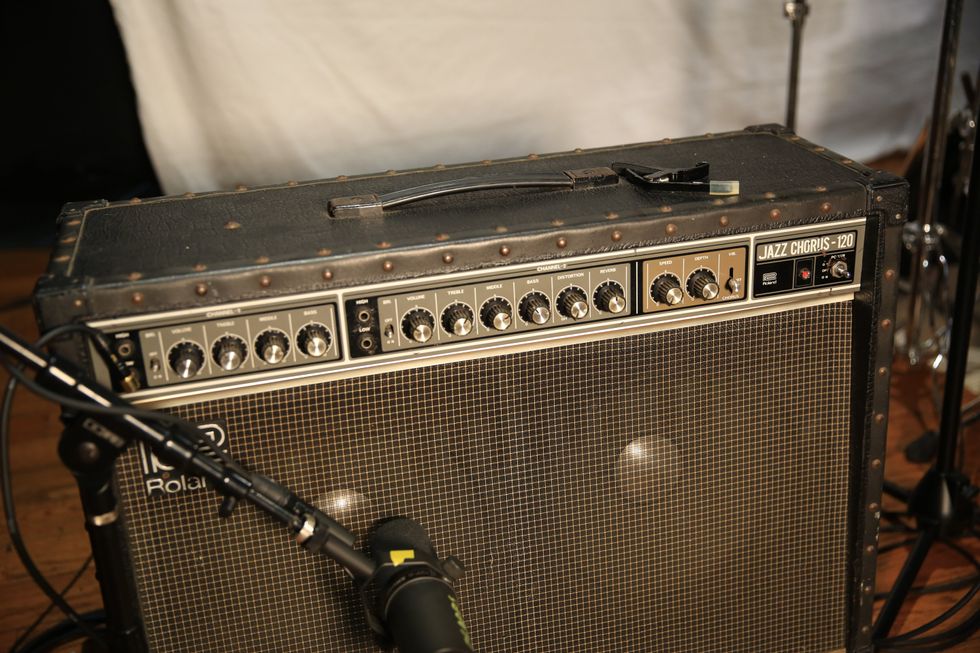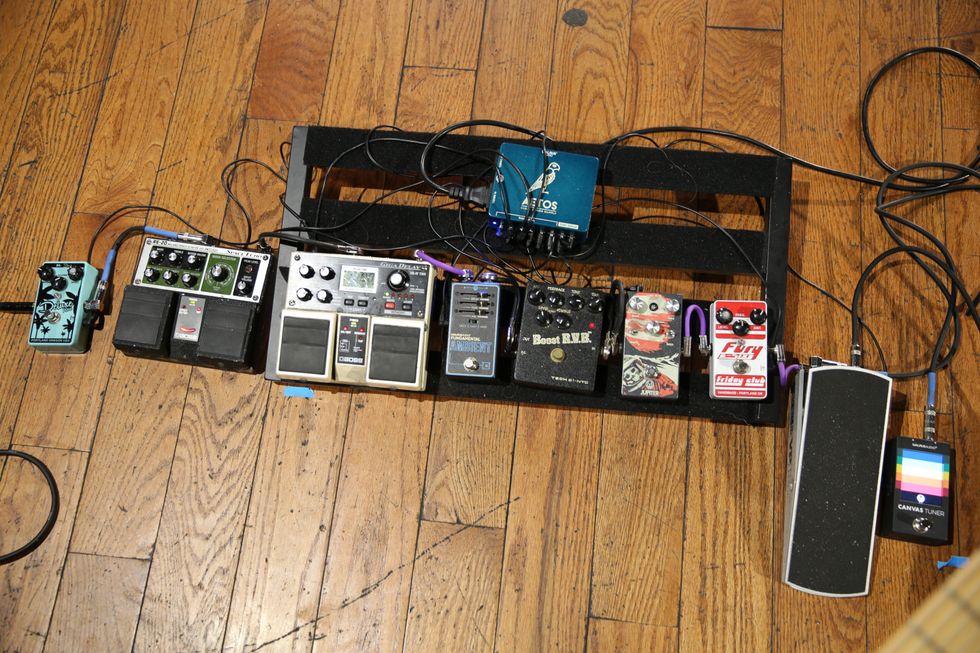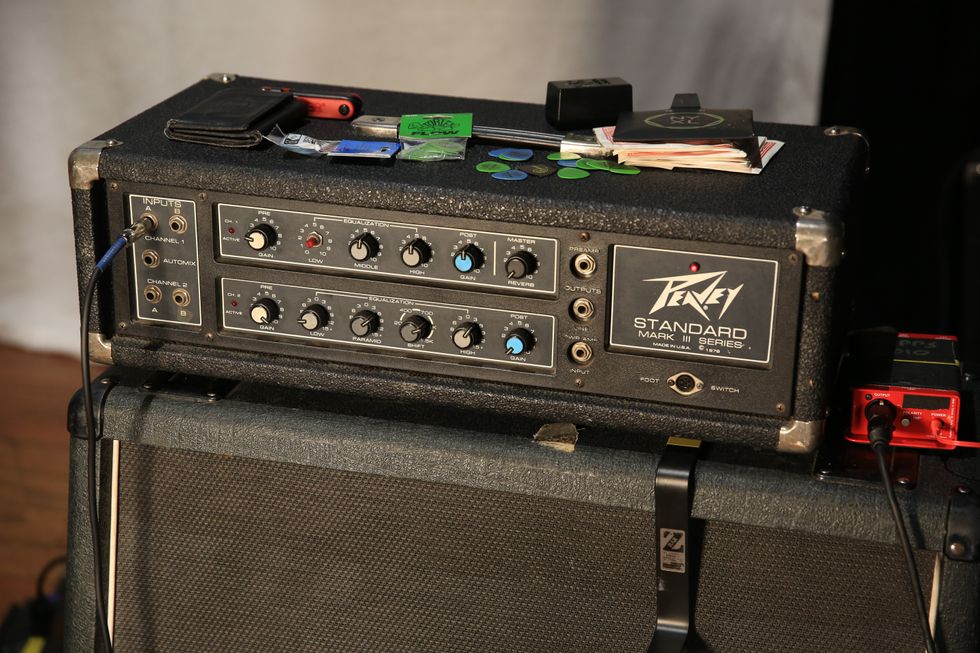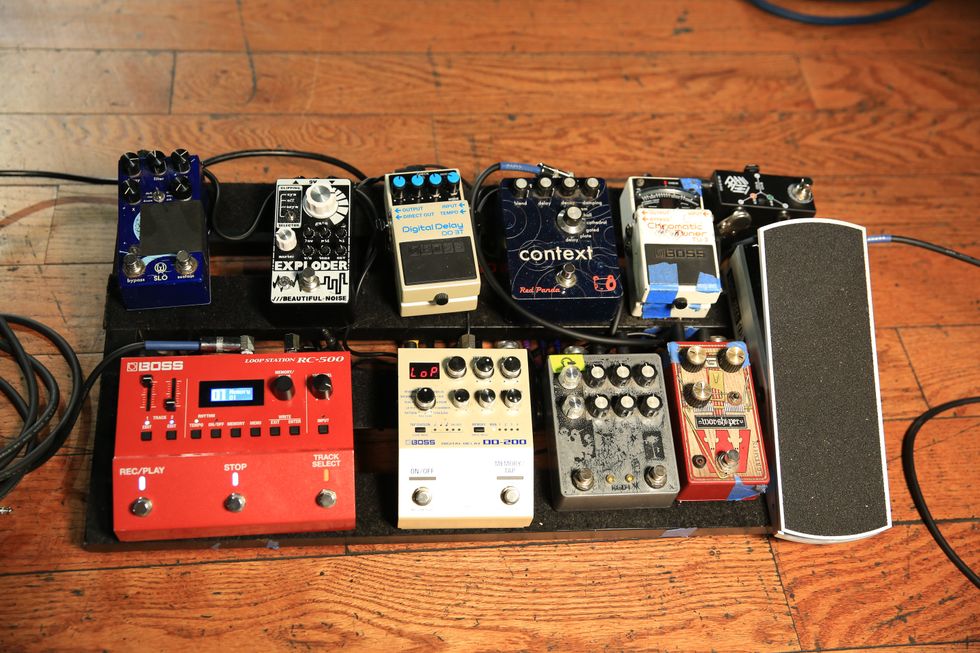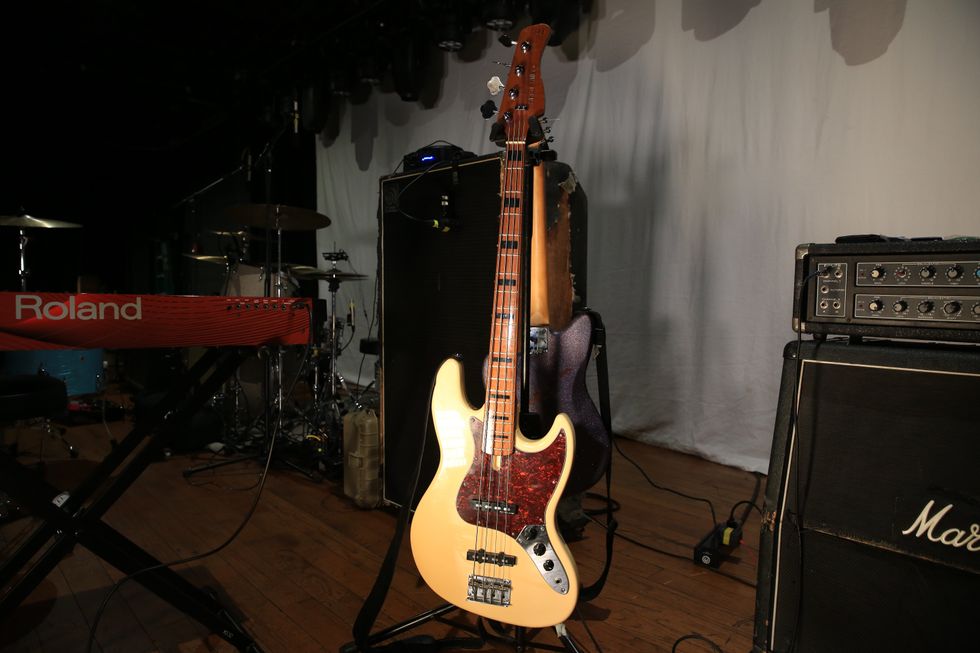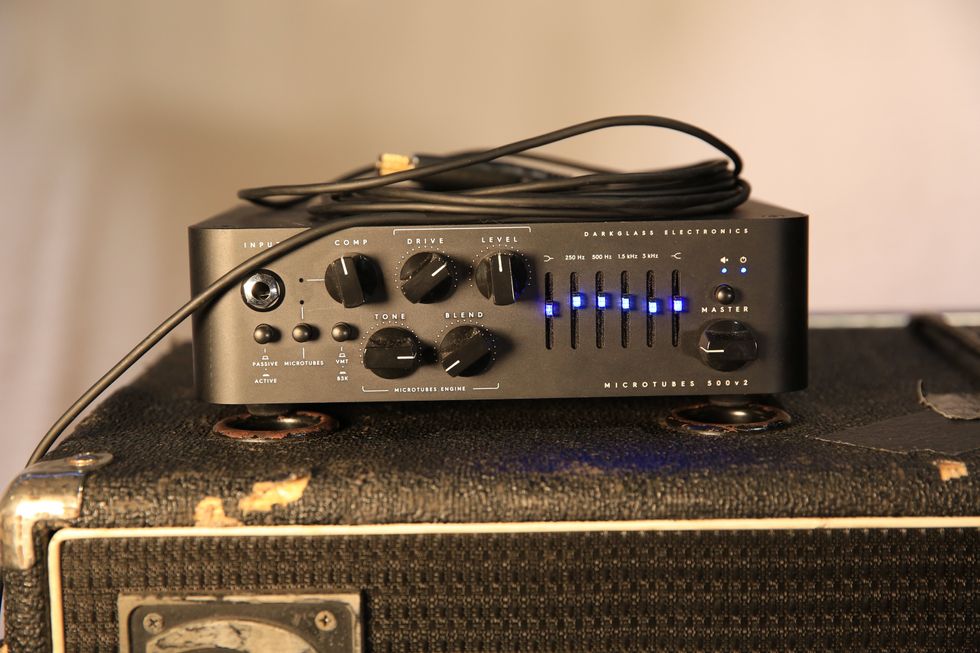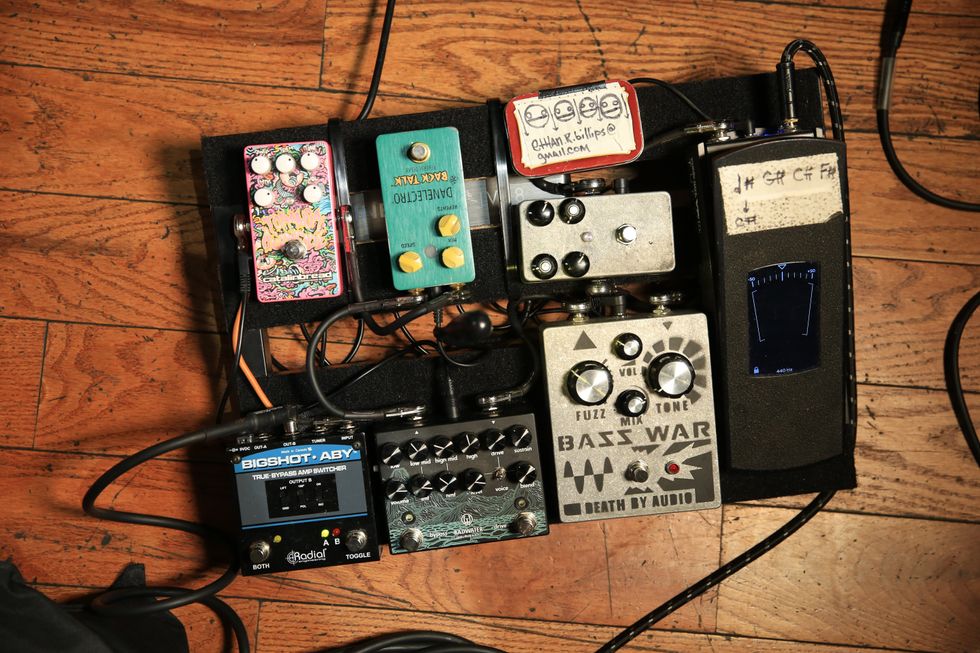“Sale proof ” is a term
dealers use for a bass or
other instrument that is a slow
and difficult sale. We’re going to
discuss sale proof basses and the
remedies for this ailment.
Each year, from the fourth
quarter and into the first quarter
of the following year, many
vintage dealers go into heavy
trade-show season. Along with
the typical buying and selling,
we track trends in both
sales and price points. With
our experience and tools, we
attempt to determine accurate
pricing. We all know the world
went off-axis in 2007 primarily
due to the mortgage crisis—
affecting home prices, investment
portfolios, and vintage
everything—including instruments,
cars, artwork, etc. We
saw prices drop as much as 75
percent on many instruments,
basses included.
We used to see people take
second mortgages, buy expensive
and over-valued basses, play
them for a few months, and
then sell them—paying back
their credit lines and ending up
with a tidy profit. They would
then essentially buy a bass for
“free” with the leftover bread.
Well my friends, the dance has
ended, and many folks are sitting
on expensive basses they
want to sell to buy something
else, trade to get something different,
or just cash out.
Many gorgeous basses were
presented to me at the trade
shows I’ve recently attended,
but I couldn’t meet the sellers’
pricing. One was an absolutely
immaculate, one-owner ’58 P
bass with an asking price of
$16,000—too pricey given the
value is only about $12,000.
Another that comes to mind
was a ’65 Fireglo 4001 in great
shape for $25,000. For that
price, I thought the owner
was selling three of them!
Interestingly, many of the sellers—including some Premier
Guitar readers—were asking me
for advice on how to move a
seemingly unmovable bass.
The bottom line is that you
are not alone. The stagnation
seems to be hitting the higher
end of the market. The purchase
frequency is off by 70
percent, and I’m now retailing
high-end basses for less than
I used to pay wholesale. The
problem here is very simple:
There’s just less money in this
segment to spend. Jobs are
fewer and they pay less, and
gigs are following suit.
An average ’64 Jazz
Bass will run about $8500.
Hypothetically, let’s say an average
reader makes $60,000 per
year. Today, a guy simply cannot
justify spending 12 percent of
his salary on a non-appreciable
item. It’s incredible that just
five years ago, the value of this
bass would probably outpace
an average 401k. A few weeks
ago, I was reading some dribble
from a “finance wizard,” far
removed from our market, that
there is an index showing an
annual escalation of 20-22 percent
for an investment portfolio
of blue-chip guitars. Sure, that
was a accurate analysis until the
bottom dropped out four years
ago. Don’t get me wrong, these
are still true blue-chip instruments,
but they are way down
in value compared to 2007, and
non-appreciating in my humble
opinion. So, where does that
leave us?
Remember that the price on
the tag does not represent the
sale price. I could tag a lump of
coal for a million dollars, but
it doesn’t mean it’s worth that
price. For accurate pricing, do
your homework by going to
a major trade show and find
four or five identical items.
Track the pricing, throw out
the highest and lowest price,
and the middle price will be
your starting point. Keep in
mind that a dealer can usually
get another 10 percent off the
“civilian” price. Also check completed
sold items on your local
e-auction, and you’ll get a feel
for what the market can handle
for your bass.
If you don’t want to cash
out, but you want or need a
different bass, you just need
to change your mindset. The
bass you want to buy today is
as devalued as the bass you are
selling today. Many guys have
said, “I’d love to buy that bass,
but I’m not taking a 30 percent
hit.” So, let’s re-evaluate. Let's
say you paid $8000 for your
gorgeous ’65 P bass in 2006.
Today, the retail for that bass is
about $6000. And now you’re
lusting heavily for a ’66 Fireglo
4005. That Ricky would have
retailed at $12,500 in 2006, but
today should run you $9500 or
so. As long as you’re “washing”
basses, you are making a lateral
move. Using this philosophy
will keep you sane.
If you want to level off a
loss, you have two alternatives,
but odds are you may not be
able to do it in one move. The
first is making a great trade up
in value, even if it’s for something
you may never play—as
long as you can sell the item
you traded. The second is selling
your bass and then buying
an instrument you could resell
with a little padding built in.
Eventually, you can break even.
Occasionally, you have to
bite the bullet and just take
the loss. When basses went
nuts, the car market also
went nuts. I bought a vintage
Corvette and sank deep money
into it. Now I’m looking to
sell it at half my investment.
Sometimes, the only way you
can get through such a hit is to
just not let it make you crazy.
Remember “this thing of ours”
is supposed to be fun and not
drive us nuts!
Kebo’s Bass
Shopping Tips
• Never believe the hype that the bass you are looking to buy is a surefire investment.
• As stated in previous columns, the market has bottomed and pricing has remained flat.
• Buy the best example available and get the bass you want! Do not settle by purchasing a bass in need of tailoring to your liking.
• Have it verified. If you are unsure of what you are buying, have the bass sent to an expert before it is sent to you. Most dealers will have a 24- to 48-hour approval period. I’ve had many basses sent to me for verification and would say roughly 35 percent are not as described, and 5 percent are grossly over-described or just plain bogus.
• Spend the extra bucks for your peace of mind.
 Kevin Borden has
been playing bass since
1975. He is the principal
and co-owner, with
“Dr.” Ben Sopranzetti, of
Kebo’s Bass Works (visit
them online at kebosbassworks.com). You can reach Kevin at
kebobass@yahoo.com. Feel free to call
him KeBo.
Kevin Borden has
been playing bass since
1975. He is the principal
and co-owner, with
“Dr.” Ben Sopranzetti, of
Kebo’s Bass Works (visit
them online at kebosbassworks.com). You can reach Kevin at
kebobass@yahoo.com. Feel free to call
him KeBo.



![Rig Rundown: AFI [2025]](https://www.premierguitar.com/media-library/youtube.jpg?id=62064741&width=1245&height=700&quality=70&coordinates=0%2C0%2C0%2C0)












 Shop Scott's Rig
Shop Scott's Rig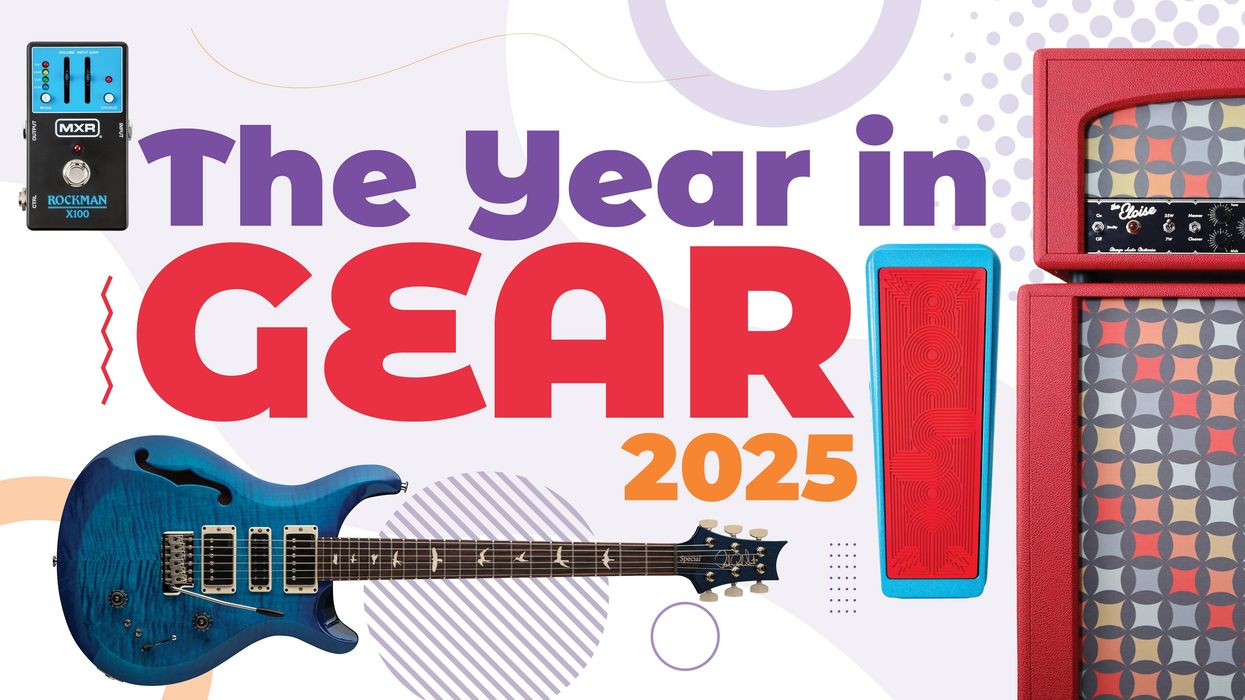

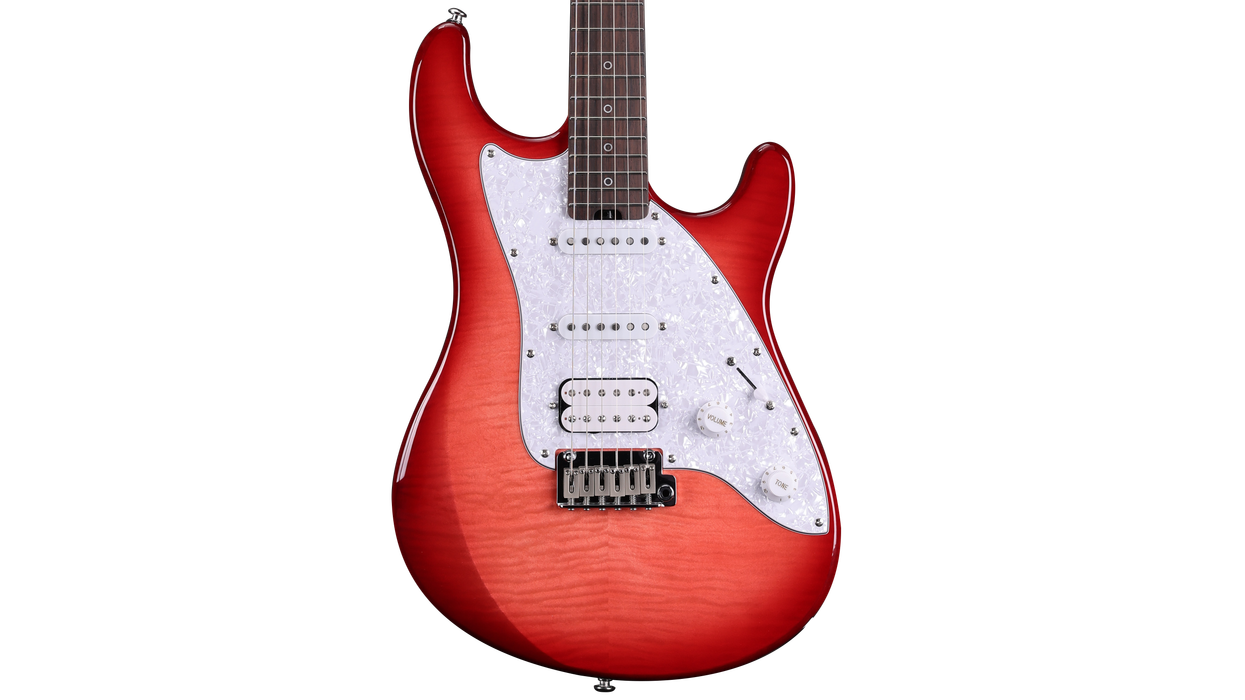
![Devon Eisenbarger [Katy Perry] Rig Rundown](https://www.premierguitar.com/media-library/youtube.jpg?id=61774583&width=1245&height=700&quality=70&coordinates=0%2C0%2C0%2C0)

